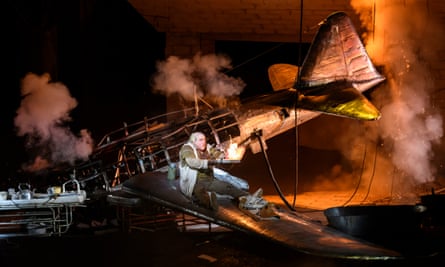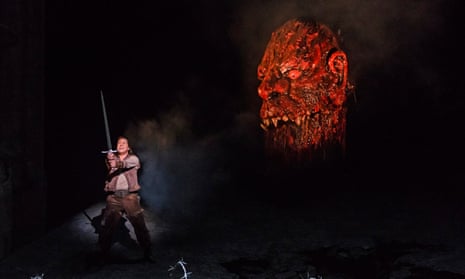There is a basic problem with Siegfried, the third opera in Wagner’s Ring Cycle. By 21st-century standards, its eponymous hero – cruel, arrogant, immature – can be hard to stomach, a Heldentenor with few opportunities to demonstrate anything besides vocal brawn.
Keith Warner’s production at the Royal Opera House makes Siegfried even less appealing. Returning to the physical comedy of Das Rheingold, Warner’s hero is an overgrown toddler let loose among the pots and pans in the act one forging scene (where no surface is left unbashed) – and dim-witted enough to leave behind the symbolically crucial sword he has just made. Returning to the role he took in the previous revival, Stefan Vinke brandished his voice like a blunt weapon, his stamina impressive but the unceasing torrent of sound ultimately monotonous.

Gerhard Siegel’s Mime, by contrast, boasted a grotesque repertory of hisses and squawks, roars and neurotic twitches. As the giant-cum-dragon Fafner, Brindley Sherratt produced a slowly vibrating fog that curled down into the tuba’s thick black beam (a highlight in another patchy performance by Antonio Pappano’s ROH Orchestra), while Heather Engebretson’s acrobatic Woodbird wove a fine thread of light through the prevailing gloom. Wiebke Lehmkuhl’s Erda was mesmerisingly poised; John Lundgren incisive and commanding disguised as the Wanderer. Nina Stemme’s Brünnhilde – rudely awakened and torn between love and fear – had the melancholic magnificence of a late-summer’s evening and expressive powers that Vinke’s Siegfried could not match.
Meanwhile, bits of aeroplane, a broken pram, a cooking station worthy of Masterchef and a pair of woodland animals on casters come and go. But the conveyor belt of symbols gradually halts. By the time Siegfried hurls himself thuggishly on to Brünnhilde on an empty stage as the curtain falls, Warner seems to have given up – the opera abandoned to its worst tendencies.
More 2018 Ring Cycle reviews: Das Rheingold | Die Walküre.

Comments (…)
Sign in or create your Guardian account to join the discussion